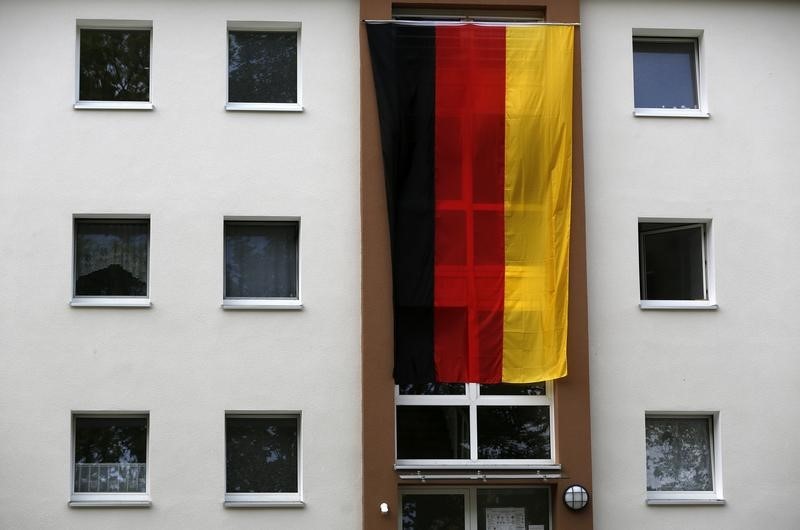BERLIN (Reuters) - The mood among analysts and investors in Germany worsened in August due to concerns about the effect of an unstable global economic backdrop on the country's export-dependent economy.
Mannheim-based ZEW said its monthly survey showed economic sentiment fell to 25.0 points from 29.7 in July. That was below even the lowest forecast in a Reuters poll of economists, which had given a consensus forecast for a reading of 32.0.
"The German economic engine is still running smoothly.
However, under the current geopolitical and global economic
circumstances a substantial improvement of the economic
situation in Germany over the medium term is improbable," ZEW president Clemens Fuest said in a statement.
"That is why economic sentiment has declined," he added.
The drop in sentiment was the fifth in a row.
The Eurostoxx 50 index (STOXX50E) and Germany's bluechip DAX (GDAXI) share index extended losses after the ZEW reading.
The deterioration in morale is a setback to Germany's economic recovery, which gained traction during the second quarter. That momentum is still expected to carry through into the third quarter thanks to a bumper rise in industrial orders.
"The German economy should carry on at around its existing rate. However, a stronger recovery is not on the horizon," Nordea economist Holger Sandte said.
Figures released last week showed industrial orders recorded their biggest gain since early 2011 in the April-June period thanks mainly to strong foreign demand.
German economic growth weakened to 0.3 percent at the start of this year. Last month, the finance ministry said that the economy would probably expand by about the same amount between April and June, with domestic demand propelling growth while foreign trade picks up.
Second-quarter gross domestic product (GDP) data is due next Friday. The mid-range forecast in a Reuters poll of 43 economists is for growth of 0.5 percent on the quarter.
A separate ZEW gauge of current conditions rose to 65.7 points from 63.9 points in July, surpassing expectations for this index to rise to 64.3.
The index was based on a survey of 228 analysts and investors conducted between July 27 and Aug. 10.
